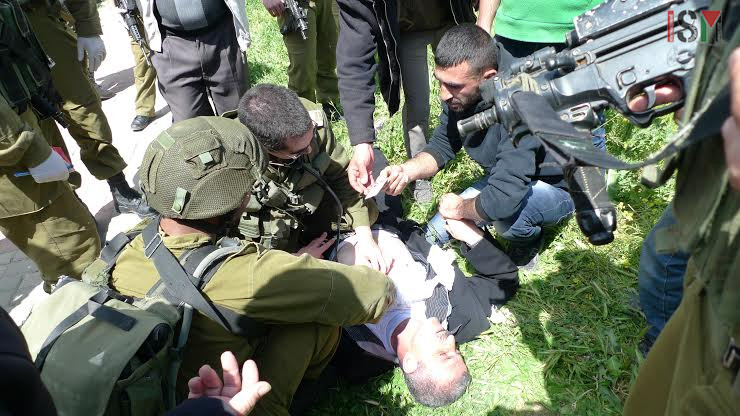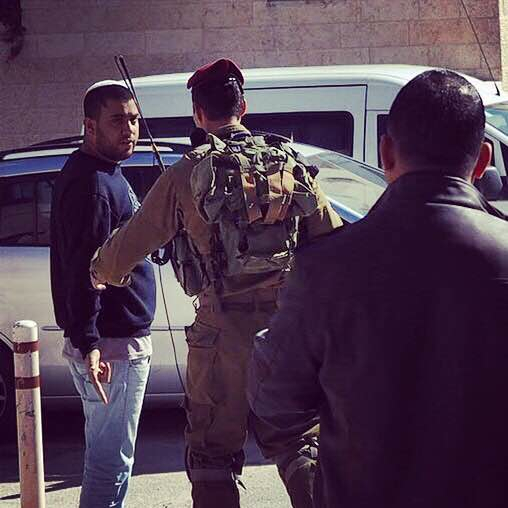Tag: Settler harassment
-
Peaceful tree planting attacked by settlers and soldiers, two hospitalised and one arrested
1st April 2015 | International Solidarity Movement, Khalil Team | Hebron, Occupied Palestine On March 31st around 40 Palestinian children and adults gathered in Hebron near Qurtuba school, a Palestinian school in the H2 neighbourhood of Tel Rumeida, to plant trees in commemoration of Palestine’s Land Day. Israeli extremist settlers from the illegal settlements in Al-Khalil (Hebron) attacked…
-
Extremist settlers hurls abuse at injured ISM activist
26th December | Ally Cohen – originally posted on Mondoweiss | Hebron, Occupied Palestine Hebron, Palestine, December 24th. As we made our way to ‘checkpoint watch’ we were discussing what it would be like that morning, would there be tear gas? Stun grenades? Child arrests? Every day children are forced to walk through military checkpoints, manned with armed…
-
Armed settler invades schoolyard in Hebron
20th November 2014 | International Solidarity Movement, Khalil team | Hebron, Occupied Palestine Yesterday, at approximately 11:00 in al-Khalil (Hebron) a settler from a nearby illegal settlement approached the Qurtuba school in H2 with a gun [H2 is the area of Hebron under Israeli military civil and security control]. The settler entered the school grounds, terrifying the…



